ESPN star Lauren Sisler on the tragedy of losing both her parents to opioid overdoses on the same day
Lauren Sisler still puts on the VHS tapes. They take her back to old gymnastics meets after long rides with her parents and her brother Allen.
“We jumped in the car and traveled for hours,” Sisler explains. Even now, she can still make out their voices from the crowd. “I just hear my parents screaming,” recalls Sisler, now an award-winning reporter for ESPN. She can make out her nickname – Wee – and her father’s piercing whistle.
What she never heard? A cry for help. Not on those videos. Not at home. Not even in the darkest hours, when opioid addiction tightened its grip on both her parents “and destroyed their lives.” Not until it was too late.
“They were just so embarrassed and wanted to keep assuming that persona that everything was fine,” Sisler says. “But everything was wrong.”
In March 2003, when Lauren was just 18, her father called. Mother Lesley had died at the age of 45. By the time she flew to rural Virginia, her father was gone too. George – better known as Butch – was only 52.
ESPN reporter Lauren Sisler has opened up about losing both of her parents just hours apart
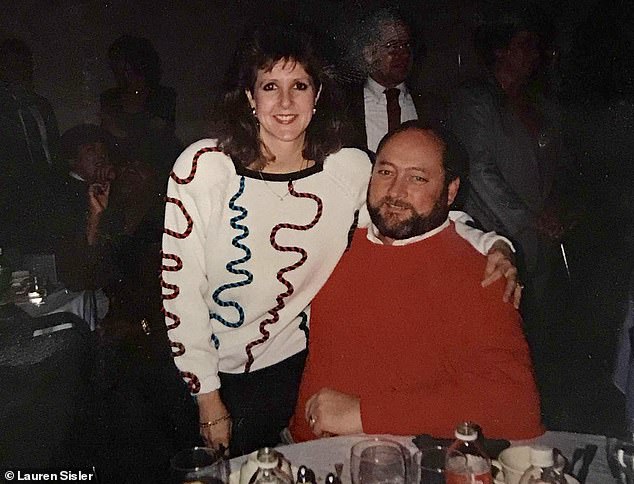
Lesley and George ‘Butch’ Sisler died in March 2003. They were 45 and 52 years old respectively
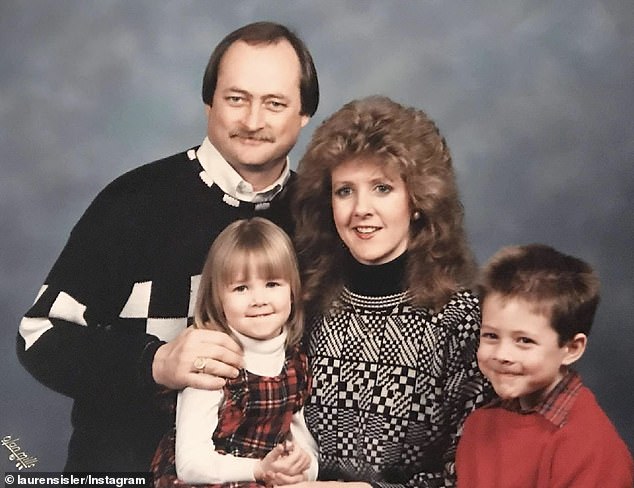
“It’s like someone taking a baseball bat into your life and shattering it into a million pieces,” she says
He had taken a patch of fentanyl from the freezer, sucked on it and overdosed – for hours his wife had done the same. George was found on the kitchen floor, Lesley on the porch.
It was a devastating end to a downward spiral that began – many years earlier – with routine surgeries and regular medications. A tragedy that happened without anyone really noticing. One that left Lauren – who had fifty dollars in her bank account – and Allen with a funeral bill, but little else. The family home was declared bankrupt and its contents put up for auction. Sisler barely recognized her parents in their caskets.
“It’s like someone taking a baseball bat into your life and shattering it into a million pieces,” she says. Twenty years later, Sisler is 39 and based in Birmingham, Alabama. The scars of that day linger — in her reaction to the smell of cut grass and her reaction to college football stars taking pills. The questions she asks coaches, the way she gives birth and the conversations she wants to have with her fifteen-month-old son, Mason.
For a while, the ESPN reporter fled from reality. She chose to make up her own story, leaving out both addiction and overdose. In recent years, however, she has filled in the gaps and answered lingering questions.
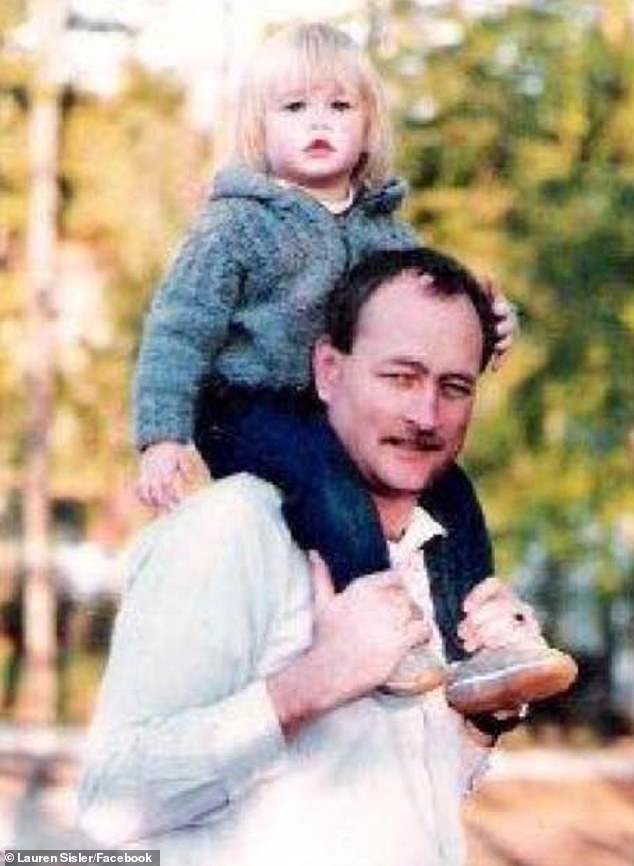
Sisler enjoyed a happy childhood, even as her parents waged a secret battle against addiction
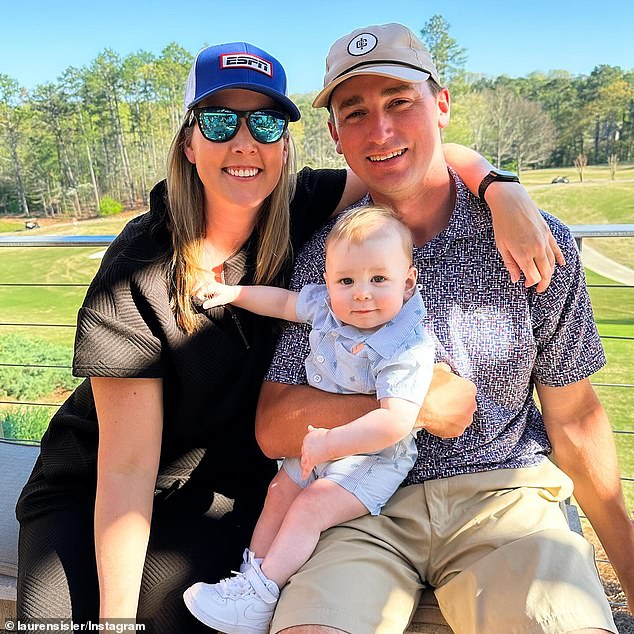
The ESPN reporter has her own family with husband John Willard and son Mason
Sisler was released earlier this month Unbreakablea book detailing her journey from shame to the “Sideline Shimmy” she performs every Saturday on ESPN.
“It forced me to delve into things and areas that I never wanted to open the door to,” Sisler explains. “When you put things on the shelf, sometimes it’s easier to just walk away from them.” But? ‘Opening those boxes, looking inside and discovering what was behind them was really healing for me.’
What has become clear: the signs were always there. “My parents would walk around the house — or we would travel to gymnastics meets — and they would have the fentanyl suckers in their mouths,” she remembers. “I’m sitting here thinking, ‘Oh, this is normal.'”
For example, her mother wrote $10 checks to the power company – just to keep the lights on. Lauren never connected the dots and discovered that the family finances were in shambles.
She also wasn’t concerned when her father watched “A Knight’s Tale” repeatedly. “I remember those credits playing over and over again for a month.” She was just a little confused (“It’s a good movie, but not that good”). Only later did reality sink in. “He fell asleep every ten minutes, secluded in the sky, just facing the TV,” Sisler explains.
As a teenager, alarm bells started ringing when arguments between her parents flared up. “I later found out that my father was taking my mother’s medication,” she says.
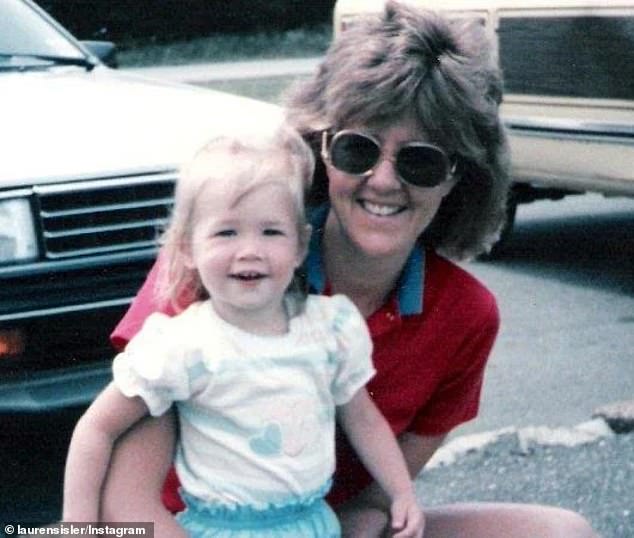
Sisler watches old VHS tapes, where she can hear her parents supporting her in the crowd
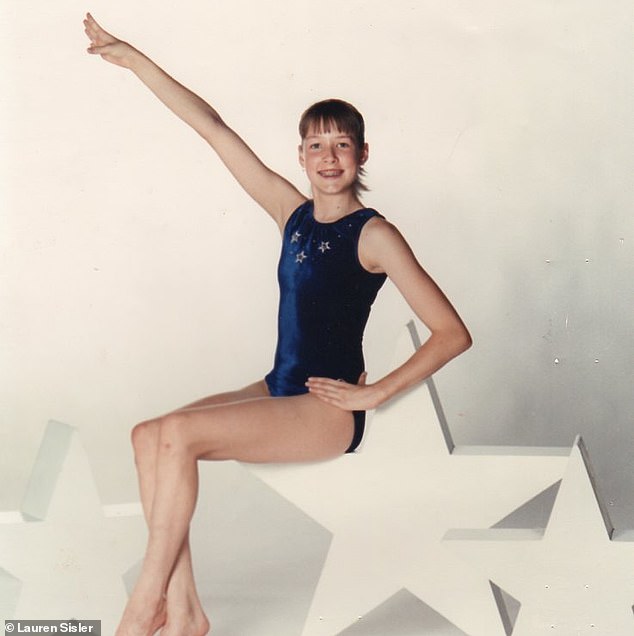
She went on to earn a gymnastics scholarship at Rutgers before family tragedy struck
But the ESPN reporter still believed the cover stories. On the eve of Thanksgiving in 2002, Sisler was back from Rutgers — she was on a gymnastics scholarship — when her father was found on the couch. He was blue, he wasn’t breathing. He had sucked on a fentanyl patch, knowing it could kill him. Sisler was told he was simply reacting poorly to blood pressure and cholesterol medications.
That was one of the last warning signs before tragedy continued. But she had good reason to believe that all was well. Sisler was born in Guantánamo Bay; her father struggled with alcoholism and PTSD after serving in the military. He could be ‘loose’ and spend money they didn’t really have. Although, her mother? “So by the book.” That’s why Sisler never worried when she underwent surgery on her neck and was prescribed medication to treat the pain.
She also felt no danger when her father had back surgery and started using opioids after seeing a pain management doctor. After all, they had built such a happy house.
“When I smell fresh grass,” Sisler explains, “I think of jumping on the trampoline (or) lying on my balance beam… my brother and I were always loved. I think sometimes it’s a mistake,” she says.
“I wish my parents had been more open.” That could have stopped the spiral. All the Sisler wishes they said? “We need help.” So she is determined to have a more open, honest relationship with her own family. She has already paid too high a price.
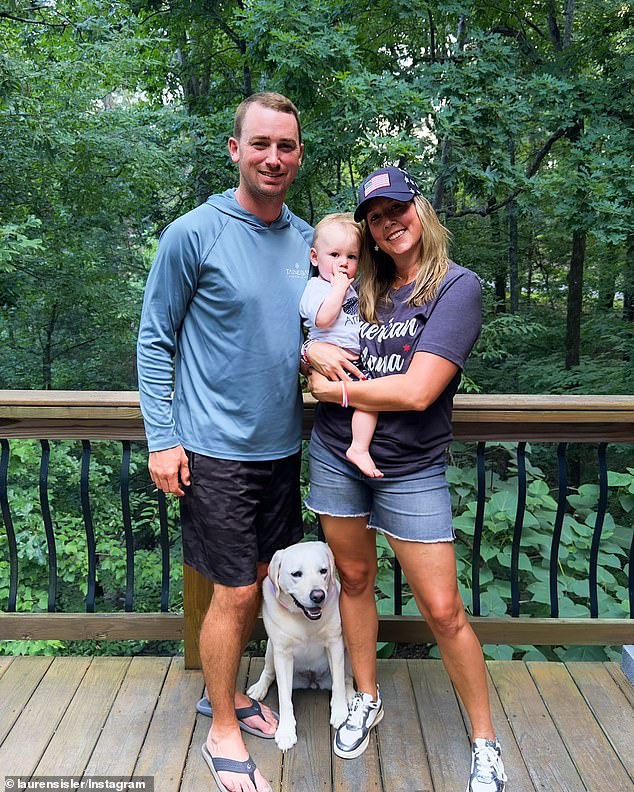
After her parents’ struggles, she wants to have a more open, honest relationship with her son
“I wasn’t home when my parents died,” the ESPN reporter said. They had spoken on the phone a few hours earlier. When her father called back in the early hours – “Lauren, your mother has passed away” – she sank to the floor. Sisler’s roommate started shaking her, thinking it was a nightmare. Soon the pain had doubled.
By the time Sisler was in high school, shipments of 90 days’ worth of pills, opioid lollipops and fentanyl patches were regularly arriving at the house. By the time they died, her parents were racing through them. Police reportedly found empty bottles for 348 OxyContin pills, 60 oxycodone pills and 82 other painkillers.
Part of the writing and healing process was piecing together that tragic day. “All we had to write down was three paragraphs from the time my dad called 911… and then what was shared at the hospital,” Sisler explains.
For a while, she faked phone calls – “just to escape the reality that they weren’t there.” She eventually told people that her mother died of respiratory problems and her father had a heart attack. Rumors circulated in Giles County that it was a murder-suicide.
One fact that no one could hide? Her parents had no will. “So their cars were repossessed, the house was sold, and literally everything we owned was boxed up… and shipped off to auction.”

Sisler, now a sideline reporter for ESPN, talks with legendary Alabama coach Nick Saban
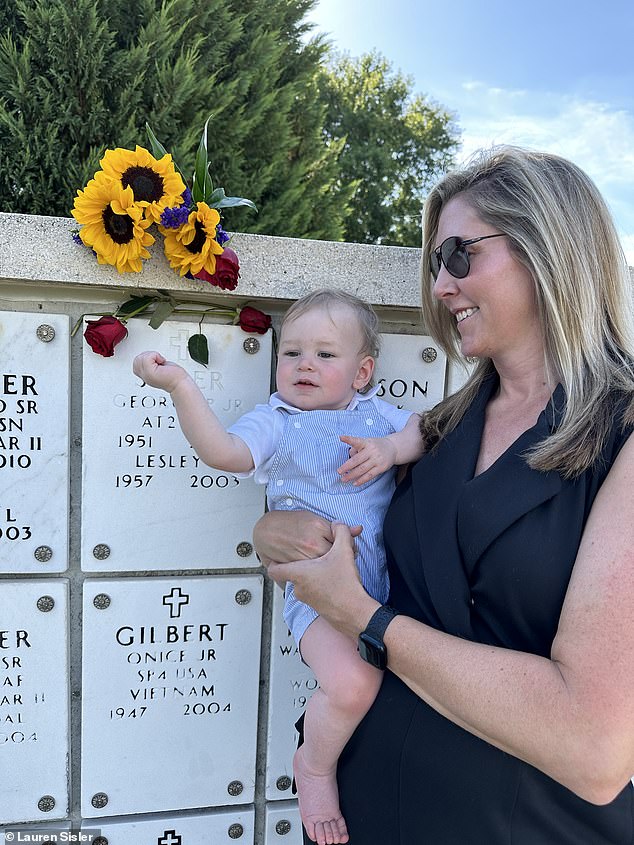
The award-winning journalist visits her parents’ grave with her son Mason
Her brother, then in the Navy, managed to bring back some heirlooms. Thanks to the local community – who raised a few thousand dollars – and a message passed around the auction house: don’t bid against the family.
Allen has secured some jewelry, their father’s dog tags, his coin collection. And his weapons too.
Sisler also drew some important lessons from the tragedy. Now, at work, the focus has shifted from the game to the stories. “It really helped me dig beneath the surface,” she says. Her own relationship with medicine has never recovered.
“I do everything I can to stay off painkillers,” Sisler explains. When she gave birth, the reporter was convinced she wanted to avoid opioids. On the sidelines, the 39-year-old is ‘triggered’ when she sees a player taking medication immediately after an injury.
“Everyone is chasing that dream,” she says. And that could mean taking “something that could ultimately change your life.” The problem? “You can’t see that far in front of you.” Not everyone can see that a quick fix can “take a dark path that could ultimately end in a tragic situation like that of my parents.”
